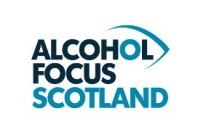Assessing the impact of alcohol marketing
Study to investigate the behaviorual, psychological and neurological effects of alcohol marketing in adults with alcohol dependence, in recovery from alcohol dependence or hazardous and harmful drinkers.

Funder: Alcohol Focus Scotland

The project: Controls on alcohol marketing are one of the World Health Organization’s ‘best buy’ policies to reduce the harmful use of alcohol. There is a known strong link between alcohol marketing and underage drinking but far less is known about the impact of alcohol marketing on other potentially vulnerable groups. Therefore, a rapid review of the evidence will be conducted to synthesise the behavioural, psychological and neurological effects of alcohol marketing in those with alcohol dependence, those in recovery from alcohol problems, and those who consume hazardous or harmful levels of alcohol.
A rapid review was conducted to explore the effect or potential effect of alcohol marketing on alcohol use and psychological, neurological and behavioural responses among people with, or at risk from an alcohol problem. We included studies which covered any of the aspects of the ‘marketing mix’ (the four Ps of promotion, place, product and price). We included quantitative (randomised controlled trials and comparative observational studies) and qualitative studies. We limited the search to adult populations. We conducted a comprehensive search of three electronic databases, grey literature searching of relevant websites, reference lists scanning and citation tacking of studies included in the rapid review. We also contacted experts in the field to identify further potentially relevant studies. We included 11 studies in the rapid review comprising of 6 studies focusing on population recovering from an alcohol use disorder and 5 studies focusing on populations with hazardous or harmful consumption levels of alcohol. One experimental study found no significant association between alcohol advertising and alcohol use. However, a significant proportion of people at risk of alcohol problems notice alcohol advertising and can find them appealing. Also, advertisements appeared to have an effect on positive alcohol-related emotions and cognitions. However, alcohol marketing may affect craving and may trigger a desire to drink in people recovering from alcohol problems. Overall, the findings from the included studies pointed to a possible effect of alcohol marketing in these populations, although the evidence is currently very limited and comes from a highly heterogenous group of studies.
Limited evidence suggests that there is likely an effect of alcohol marketing in people with, at risk of, or in recovery from an alcohol problem through increasing alcohol-related emotions, cognitions and craving. These groups of individuals meet criteria for vulnerability and as such should be a concern for marketing regulators.
For more information contact: rachael.murray@nottingham.ac.uk
Back to our research